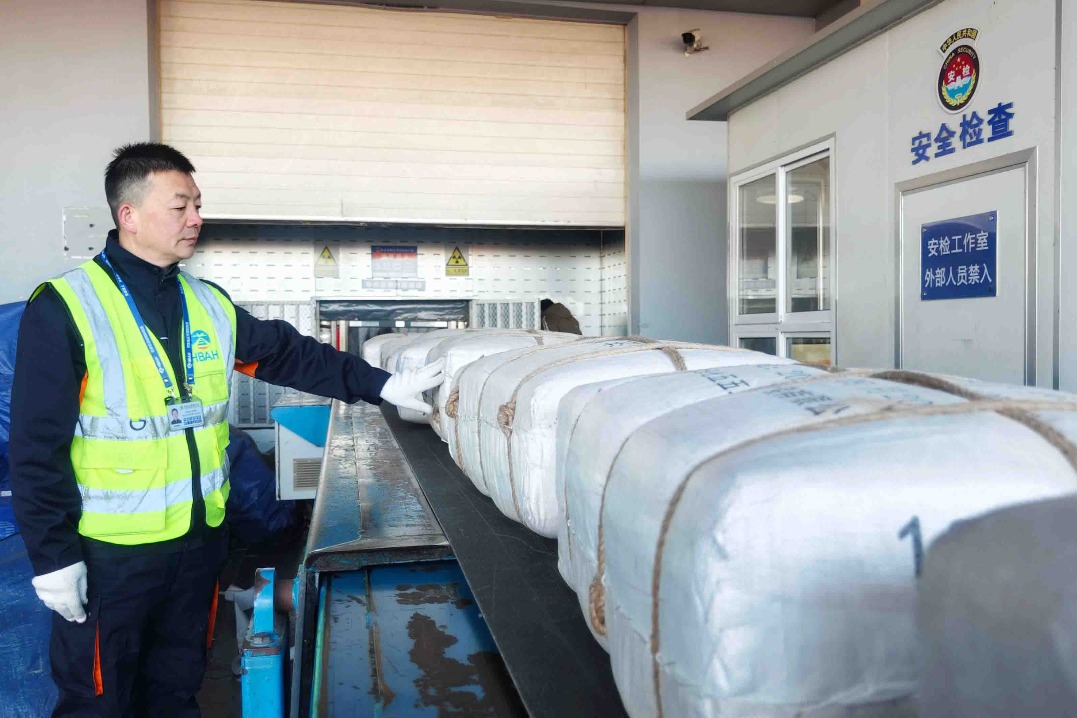How livestreams helped a village survive outbreak


With her hair curled and face powdered, Liang Qianjuan, a farmer from Gansu province, was ready for her close-up. In a few moments she would be live on camera, raking in the cash.
Sitting in front of a table laden with a dozen seasonal products, like apples, walnuts, honey and carrots, Liang elaborated on their quality, taste and nutritional value to her tens of thousands of online followers.
The 33-year-old runs Longshan Zhuangyuan, an online store operated from a small, remote village in the city of Longnan.
She sells local agricultural products, such as dried long beans, almonds and eggs, to customers across the country.
"Online sales and livestreaming are the current trend. Compared with simply selling products through online shops, livestreaming allows better communication with customers and boosts sales as they can see the products in a more vivid way," she said.
But her path to success has not been straightforward.
Dropping out after middle school, she went to Guangdong province to earn a living. Liang moved up from being a migrant worker on an assembly line to a secretary in an office. After more than a decade in Guangdong, she quit her job to return home in 2013.
Encouraged by the local government's policies supporting e-commerce development, she made a decision that changed not only her own fortunes, but those of others in her home village.
"In the beginning, fellow villagers all thought e-commerce was nothing but a fraud, and they still sold to middlemen when I offered a higher price," she said. "My store, as a result, only had one product on sale-my family's homegrown walnuts."
But her store proved so popular that in just over a year she gained quite a few regular customers and started selling more local agricultural products online. Many local farmers began enlisting her help to sell their produce in return for a cut of the sales.
"Many businesses in such a backward village don't sell online because they don't know how to," Liang said.
"But we chose to do it because selling online has increased farmers' incomes by enabling them to reduce overhead costs and sell agricultural products to more people without traveling far."
Last year, Liang sold more than 50 metric tons of agricultural products through online orders. Due to the expansion of her online sales, she now has 400 local farmers supplying products to her-a quarter of whom used to live below the poverty line.
Earlier this year, when the novel coronavirus outbreak took a grip nationwide, her online sales channel and livestreaming helped her and the villagers stay afloat as restrictions were imposed across the country.
While people scrambled to shop online for everyday supplies, Liang's business ran smoothly and prevented the villagers' produce from rotting in the field. She said the new business model had given them a lifeline.
Though the logistics company that she relied on had shut down because of travel restrictions, the local branch of China Post provided a delivery service.
"Livestreaming helped the industry weather the crisis-it's forged an entirely new way of business that is likely to continue for a long time and become part of daily life," said Liang, who is also a National People's Congress deputy.
She said as this year marks the deadline for China to eradicate absolute poverty her goal is to "build a digital engine for rural revitalization and a new rural infrastructure driven by technology to help more villages".
- Gansu noodle team rushes aid to earthquake-hit Xizang
- Hebei sends winter supplies to earthquake-hit Xizang
- Shanghai Disney Resort ushers in the Year of the Snake with festive celebrations
- Chinese researchers develop green, effective pesticide formulation
- 1,211 aftershocks detected after Xizang 6.8-magnitude quake
- Great Wall's most dangerous section to launch 1st tourist route





































